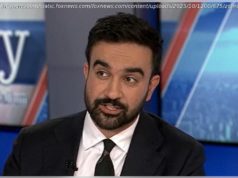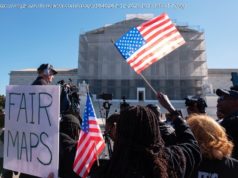Gen. John Nicholson, the top U. S. military commander in Afghanistan, absolutely has the confidence of President Donald Trump in the job he’s doing there, national security adviser H. R. McMaster said in an interview airing Saturday.
Gen. John Nicholson, the top U. S. military commander in Afghanistan, « absolutely » has the confidence of President Donald Trump in the job he’s doing there, national security adviser H. R. McMaster said in an interview airing Saturday.
« I’ve known him for many years, » said McMaster, a U. S. Army lieutenant general to MSNBC’s Hugh Hewitt during a wide-ranging interview recorded earlier this week. « I can’t imagine a more capable commander in any, on any mission. »
McMaster said Nicholson also had the confidence of Trump and Defense Secretary James Mattis, despite reports that there has been a deep divide between Trump and his generals.
The interview was recorded before reports surfaced on Thursday that Trump is considering removing Nicholson and replacing him with McMaster. According to The New York Times, Trump would then move CIA Director Mike Pompeo into McMaster’s job heading up the National Security Council.
However, late Friday, Trump defended McMaster after attacks by conservatives, telling the Times that « Gen. McMaster and I are working very well together. »
« He is a good man and very pro-Israel, » Trump said in his statement that was emailed to the Times. « I am grateful for the work he continues to do serving our country. »
A senior White House official also told the Times that the president has « total confidence » in McMaster.
The president, McMaster said, has made a number of decisions because he wants to prioritize the safety and security of the American people while destroying ISIS.
« There’s a tremendously successful campaign going on with Afghan forces in the lead, » said McMaster. « It’s an underreported campaign in Nangarhar province of Afghanistan. The president has said that he does not want to place restrictions on the military that undermine our ability to win battles in combat. He has lifted those restrictions and you’re beginning to see the payoff of that as well. »
Trump has also made it clear that the behavior of those providing haven and support for terrorist networks like the Taliban has to change.
« This is Pakistan, in particular, that we want to really see a change and a reduction of their support for these groups, » said McMaster. « They fought very hard against these groups, but they’ve done so really only selectively. [Trump has] also said others have to share the burden. »
However, McMaster refused to talk specifics about troop levels and other strategic matters, as the Trump administration will not follow the Obama administration in « announcing to the enemy years in advance exactly the number of troops you’re going to have, exactly what they’re going to do and what they’ re not going to do. »
« The president has said that is not the way to fight a war, » said McMaster. « It never has been. This is an invention of recent years. »
McMaster explained the American people should understand first what is at stake in Afghanistan, and what the strategy is to assure an outcome that meets the vital interests of the United States and its military.
« What we’re endeavoring to do is pull this all together in a regional strategy that makes sense, right, so our secretary of state has laid a very strong foundation for this, » said McMaster.
For years, the strategy in Afghanistan has been « disconnected, » said McMaster.
« What we’re doing militarily was disconnected from what we’re trying to achieve politically, » said McMaster. « So, you say to the Taliban, ‘Hey, let’s see what we can do to accommodate some of your concerns so we can end the violence, and by the way, we’re leaving.’ I mean, how does that work? »
McMaster said he does believe Americans understand what’s at stake in Afghanistan.
« It’s etched in so many of our memories, that the mass murder attacks against our nation on September 11th, 2001, originated from Afghanistan, from a Taliban regime that gave safe haven and support basis to al-Qaida, » said McMaster. « Americans don’t realize the Afghan army suffered 6,700 soldiers killed in action last year. So, who is doing the bulk of the fighting? The Afghans are. »
Trump does not want to take over the war, but has asked what more the United States can do to help, said McMaster.
« What burdens, responsibilities can the United States and allies and partners share, [so] that the Afghan government, the security forces can succeed against this enemy of all civilization? » asked McMaster.






